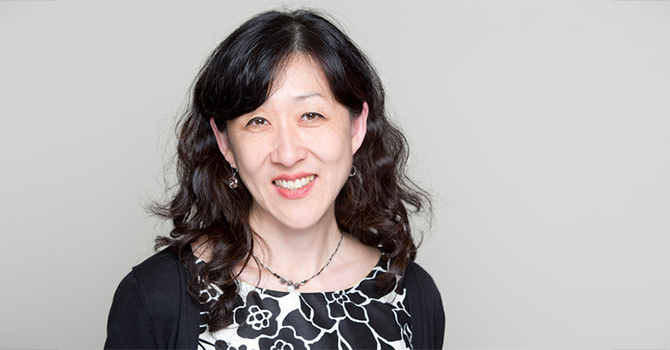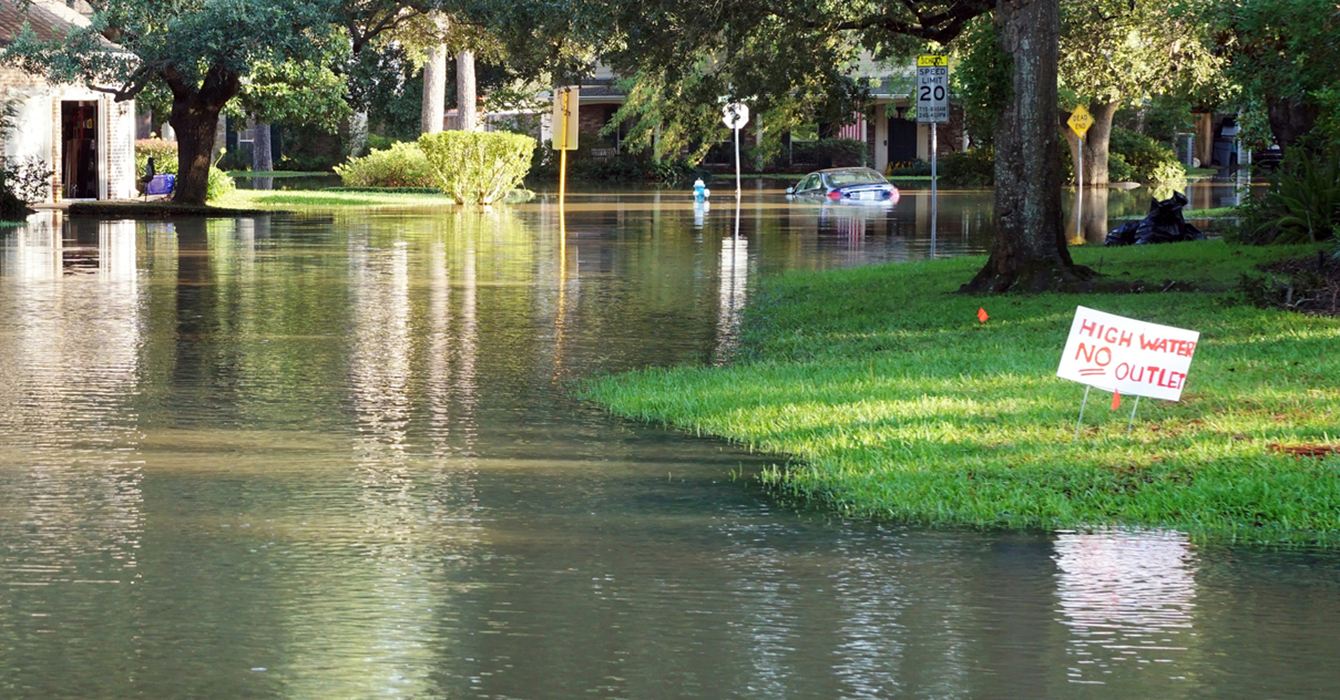Over the centuries, the church in the West has come to neglect the Holy Spirit, reducing it to a vague philosophical concept, says Grace Ji-Sun Kim, a Korean-American theologian and professor.
But the Spirit, at least biblically, is something concrete and real, Kim says. And the church needs to reclaim it fully in order to help bring about interfaith dialogue, reconciliation and social justice.
"That's the way that we can start to love one another or embrace those who are so different from us," Kim said. "It's only through the help of the Spirit."
And because all religions have some understanding of the Spirit, it opens up possibilities for interfaith dialogue, Kim said.
"So that becomes this common ground, where we can just talk about God or Spirit God, and then we won't be afraid of those who are of other faiths, like Islam," Kim said.
An associate professor of theology at Earlham School of Religion, Kim is a prolific writer and editor. Her most recent books are "Embracing the Other: The Transformative Spirit of Love" and "Here I Am: Faith Stories of Korean-American Clergywomen." She has an M.Div. from Knox College, University of Toronto, and a Ph.D. in systematic theology from the University of St. Michael's College, University of Toronto.
She was at Duke Divinity School recently to deliver the plenary lecture for the Summer Institute for Reconciliation and spoke with Faith & Leadership. The following is an edited transcript.
Q: You write about a wide variety of subjects, with books on the Holy Spirit, intercultural ministry, race, gender, climate change, social justice, parenting. What ties it all together?
It does look all over the place. But even when I write about the Holy Spirit, it's all tied in with social justice. When I write about climate change, that's tied in with racial justice, because there's environmental racism. It's about human rights, because women and the poor are the most vulnerable and the most affected globally by climate change.
So even though it looks like I'm all over the map, the center that drives my work, my research and writing is working toward justice in the world, whether racial justice, gender justice or environmental justice. They are all tied together, because it's all about human rights.
When I write about the Holy Spirit, I talk about how the Holy Spirit is a way that we can talk about interfaith dialogue. We are so afraid of other people's religion or culture. Earlier, I thought I was going to concentrate on Christology, because as Christians, we've got to do Christology. But I realized Christology doesn't help us when we're talking with people of other faiths.
Instead, it becomes this wall, where people of other faiths can't understand us and we refuse to talk to them, because we keep saying, "You've got to believe in Jesus." But if God is this Trinitarian God and this Spirit God, all these religions have this understanding of the Spirit. So that becomes this common ground, where we can just talk about God or Spirit God, and then we won't be afraid of those who are of other faiths, like Islam.
We're so Islamophobic in the United States. This election makes us realize that we are so afraid of those who are different from us. My book "Embracing the Other," which came out last year, is about the Spirit God and how it's working toward racial justice and gender justice. That's the way that we can start to love one another or embrace those who are so different from us; it's only through the help of the Spirit.
Q: So this third part of the Trinity, the Holy Spirit, you see as a way to overcome difference and people's fear of the other?
Yes. If we say, "Oh, I can do it, I can do it," it's never going to happen. It's really the Spirit that exists all around us, the Spirit that created the world, the Spirit that kind of breathes in us and gives us life, that exists in all these other cultures.
In Africa, they have this deep sense of spirituality. It may not sound like a Christian spirituality, but they have this understanding of the Spirit, and they've had it for thousands of years before Christians ever got there. When we think about their understanding of the Spirit, we get really afraid, but the [concept] is very similar.
In the Old Testament, we use the term ruah, or "breath," for spirit. Then in the New Testament, we use the Greek term pneuma, or "wind." And then when Christianity was strong and popular in Germany and in Europe, theologians used the term geist. We use these different terms, but they're all similar.
I'm Korean-American, and in my own Korean tradition, and in the East Asian tradition, we have a term, chi, that has been a way of us understanding the Spirit. The Spirit is this life-giving aspect. It gives us strength. It's everything that the Old Testament and the New Testament is talking about, but we have this different term.
My theological endeavor is, let's look for the commonality rather than all these differences and being afraid of all these other people or those who have different religions.
All these different cultures use this understanding of the Spirit. But I think Christianity has monopolized the Spirit when we shouldn't have. We say "Holy Spirit." Once we add "holy" in front of it, it becomes our own, and we feel like every other person's understanding of the Spirit is false.
But my gosh, you know, this earth is huge. How can we contain the breath of God? How can we contain the Spirit? We can't, so I think we've got to let go.
Q: Is everyone, all these different cultures, talking about the same thing when they talk about the Spirit?
That's the beauty of humanity. If we can recognize that I use a different language than you would and my neighbor would, what is the problem at the end of the day?
We shouldn't be fighting about all these different doctrines and the way we personally understand God. I'm a Presbyterian, and within the Presbyterian Church, we have millions of ways of understanding God.
So rather than being so scared of that and trying to be so orthodox about it, so that we've got the right faith and the right teaching, allowing the Spirit to move -- that's what my book is aiming to do.
It is the Spirit that can really transform us. The subtitle of the book is "The Transformative Spirit of Love." It's this transformative Spirit that comes within us that can really change us to really love, because that's what we're commanded to do -- love God and then love our neighbor -- but we can't.
Q: In "Embracing the Other," "the other" is not just other peoples and cultures but also other concepts of the Spirit. You say there is a hierarchy of cultures, and the West tends to assume that anything from the East is inferior.
It's this Orientalism, so anything from the East is less intelligent, inferior. It's more feminine, this exoticism of the East. Only the West can be the intellectual, the rational.
The East is [viewed as] emotional, so there's dualism that comes in play. So anything that we want to bring from [Eastern] culture about our understanding of the Spirit -- which is so parallel to what the Old Testament and New Testament talk about -- people get scared.
But we in the East have been talking about the Spirit, about chi in the universe and chi within us, for thousands of years.
In Christianity, we do laying on of hands or we pray for one another. In ordination, we lay on hands. But suddenly, when another culture is talking about healing with hands or laying on hands to heal, we [think], "Oh my God, that's so …"
Q: "That's just weird."
Yeah. "That's weird." That's it.
Q: Do you think maybe Christians no longer believe in the laying on of hands?
Yes. Because we've rationalized it. We've become the scientific people. So it's become this symbolic thing rather than really, "Does healing happen?"
Q: You're here at Duke Divinity School for the Summer Institute for Reconciliation. Where does this re-emphasis on Spirit fit in with the work of reconciliation?
Reconciliation happens at various levels. Especially in the South, reconciliation is talked about in "black and white" terms -- as in reconciliation between black and white people because of the history.
But reconciliation needs to happen at all levels, as in reconciliation with the earth.
The new book I edited, "Making Peace with the Earth," says that in order to make peace with one another, we have to make peace with the earth. There has to be reconciliation with the earth.
Reconciliation happens in multiple ways. But I think it's the Spirit that helps us move toward reconciliation, because it's hard work.
When I talk about embracing the other, we can't just say it. We've got to take steps to embrace. We've got to take physical steps to actually work toward embracing. And reconciliation is the same thing.
Churches talk about, "Oh, we're reconciling." But they're not really doing anything. They're not really taking these physical steps to do something to make a reconciliation.
Q: It is embodied, physical, messy work.
It is.
Q: So how does Spirit link with that hard work? Wouldn't it lend itself to merely talking about reconciliation rather than doing it?
When we think about the ruah in the Old Testament -- and pneuma -- it was more tangible. When the Israelites were roaming around the desert, they knew the wind was strong. The wind had separated the Red Sea. The wind was powerful. They felt God's presence in the wind.
But once Christianity became more Eurocentric, it became this philosophical concept. The Spirit was this kind of philosophical concept "out there," and Christian theology forgot about the Spirit. It has become the stepsister. We've kind of neglected the Spirit.
Q: It's the part of the Trinity people mumble over.
Yes. But the Spirit, biblically, was very concrete. It existed within us.
When we think in these concrete terms and use terms like chi or the Indian term prana, then we recognize that the Spirit actually is within us. Jesus said, "The Comforter will come and be with you and will strengthen you." It is really the Spirit within us that is going to help us transform, because it helps us overcome our phobias against other people.
The Spirit awakens us to these problems.
And the biggest challenge is climate change. I can talk about racism all I want, but if this earth can't sustain us, we're going to die. So there will be nothing to talk about if we're all wiped off the face of the earth.
God created the world and told us to be caretakers. That's a very serious commitment. We need to take care of it and stop doing all of the damage that we're doing.
It's all intertwined -- because we view the earth as feminine. We've called it Mother Earth so we can do what we want. We've dominated it.
It's just like how we view the East. The East we can go and conquer. We can teach them, because all their ways are wrong. The East is very primitive. They don't know anything, so we've got to teach them and get rid of their religion, because it's all primitive; we've got to get rid of it.
The same way with the earth. We rape the earth because we view it as feminine. We can take whatever we want from it. We can dominate it. We can subjugate it, thinking the earth will sustain itself. It's not going to.
We've got to reframe our Christian eyes or lenses so that we recognize this is all interconnected, and we've got to stop this.
The first 2,000 years of the church was really Christocentric. Everybody is predicting that the next thousand years is the Spirit, and somehow the Spirit is transforming us.
I'm Presbyterian, but I don't know. We in the mainline so shy away from the Spirit. And Pentecostal churches or the Holiness churches -- we think they're kind of crazy. But we need to learn from each other, because the Spirit is moving.
Q: Why does it make mainliners so uncomfortable?
Because mainliners came up from Eurocentric Christianity, which made the Holy Spirit this intangible concept out there that we really don't need to talk about.
We were very Christocentric. We were so focused on what Jesus did, and the sacraments, that we neglected the Spirit for a long time. But I think it's time [to recover it], especially if we say we're a Trinitarian faith. I'm not going to throw away Jesus, but I think bringing back the Spirit [can] really transform how we view Jesus today.













